December 21, 2018
Handling the Holidays: How to Get Ahead of Holiday Hiccups
Contributed by Alison Tweedie, Education Specialist

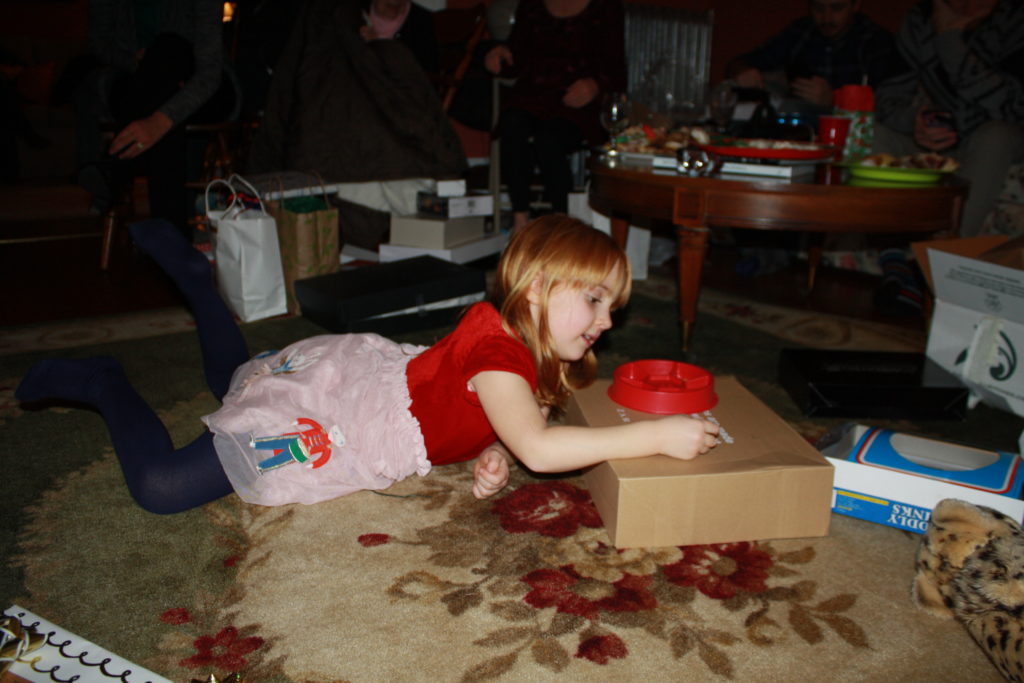
If your family is anything like mine, you’ve already had one weekend of holiday celebrations with more to come — plus Christmas Day itself. Children are particularly aware of the feelings floating through the air this time of year. They are in tune with the pleasant feelings of excitement, anticipation, joy, surprise, and wonder—and they also experience the unpleasant feelings of anxiousness, overwhelm, fear, guilt, and exhaustion.

Here are some common stresses around holidays with children and how to tackle them.
Naptime Nightmares
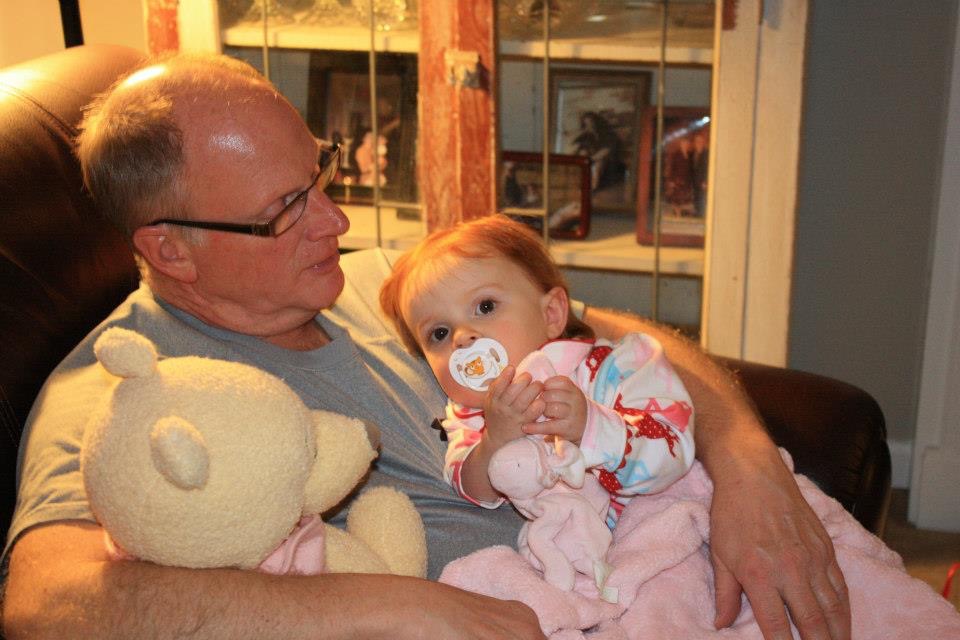
Holiday celebrations often require travel and/or a child napping in an unfamiliar place. What can you do to help your child adjust and adapt?
- Plan Around Your Child
You know your child best – if your child does not adapt easily to changes in their routine, you may be better off arriving early or late to an event so they can get their much needed sleep at home. If they roll with changes easily, they may simply need a brief explanation from you letting them know what is going to happen, along with reassurance that they are safe, that you will be nearby, and that you will see them when they wake up. - Keep Comfort Consistent
When you need to change your child’s typical routine, bring as much of that “home consistency and comfort” along with you. Your child’s favorite blanket and their comfort items (stuffed animal, pacifier, lovie, etc.) kept within reach in the car and at your destination can be a soothing presence for little ones. For older children, perhaps their favorite toy (just one or two) will give them that comfort. - Bring the ‘Scent’ of Security
Infants and young toddlers use their senses to understand what is going on in the world around them – including their sense of smell. Instead of traveling with a clean crib sheet, try using one from the crib that has that scent of home. Placing something with mom’s scent (like a t-shirt she slept in) near the crib can add similar comforts.
Mealtime Meltdowns

Holiday meals sometimes consist of food choices that are unfamiliar to children, or the exact same food they eat every night but now it’s in a new house and there are other people around so they won’t eat it. We stress that our children aren’t eating enough, aren’t eating healthy options, or won’t eat what we put on their plate.
- Plan Ahead, and Be Realistic
When we had a seafood paella for our Christmas gathering last week – I knew for a fact that our preschooler and our toddler would not eat enough of it (or any of it) to satiate my mom guilt. We brought some simple pasta (their favorite) to heat up so they could 1.) Eat when they were hungry and 2.) Eat what they liked. Neither child ate much of the pasta. Why? Because we had a spread of veggies, cheese, and crackers leading up to the meal. While I know that children are really good at gauging their own hunger or fullness, I still needed the pasta to tell myself, “You did everything you could. It’s their favorite, they just weren’t hungry.” I also told myself cheese is calcium, veggies are good, and everyone overindulges a bit at the holidays with cookies and snacks. The kids probably did a better job regulating their food intake than the adults. The moral: bring what they like, encourage them to try new things, expect a day of grazing.
“I Want More”
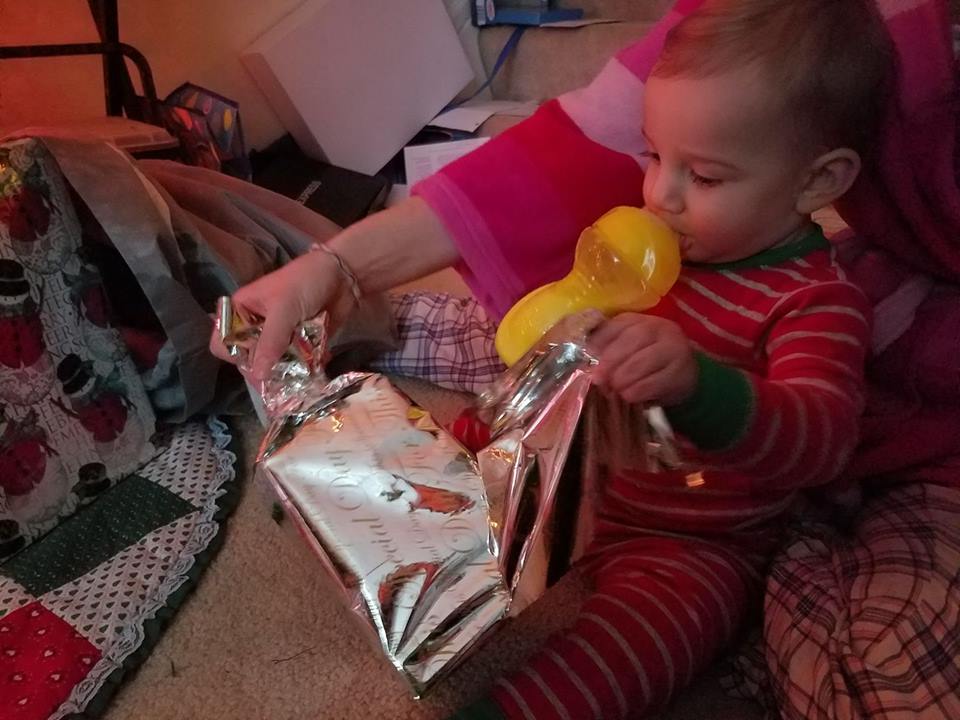
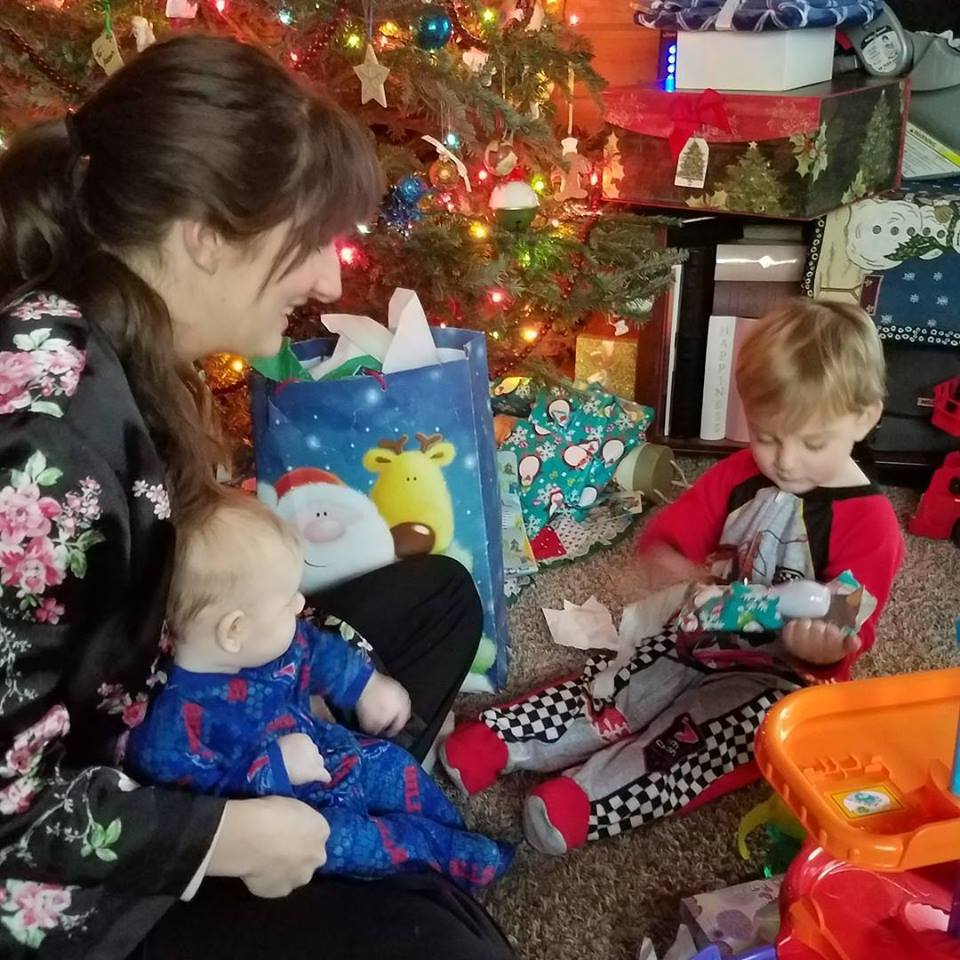
These words came out of my son’s mouth last week and I almost had a heart attack. He is three and at the age where he is starting to fully comprehend what is going on with this holiday business. He opened the last gift with his name on it and said, “I want more.” A wave of sadness, disappointment, nausea, embarrassment, and disgust washed over me as words like greedy, selfish, and unappreciative flashed across my mind. I took a deep breath and came back to reality. My son is none of these things – he is three. His most recent memory is from his birthday (last month) when he got to open gifts from every family member and they were all for him. He has not yet wrapped his brain around the social expectations and behaviors associated with Christmas in a group setting. It’s more of an expression of disappointment that the experience has come to an end than an expression of greed.
- “I Understand…”
Explain that the gift opening is over. It’s hard for something we enjoy to come to an end. Mommy and daddy feel the same way sometimes. We don’t necessarily need to make excuses or tell them when the next opportunity to open a present will come. In my case, I did need to explain the difference between birthday present opening and Christmas present opening. Some suggestive redirection may be helpful, such as, “Let me know when you are ready and we can play with one of the gifts you got.”
Affection Rejection
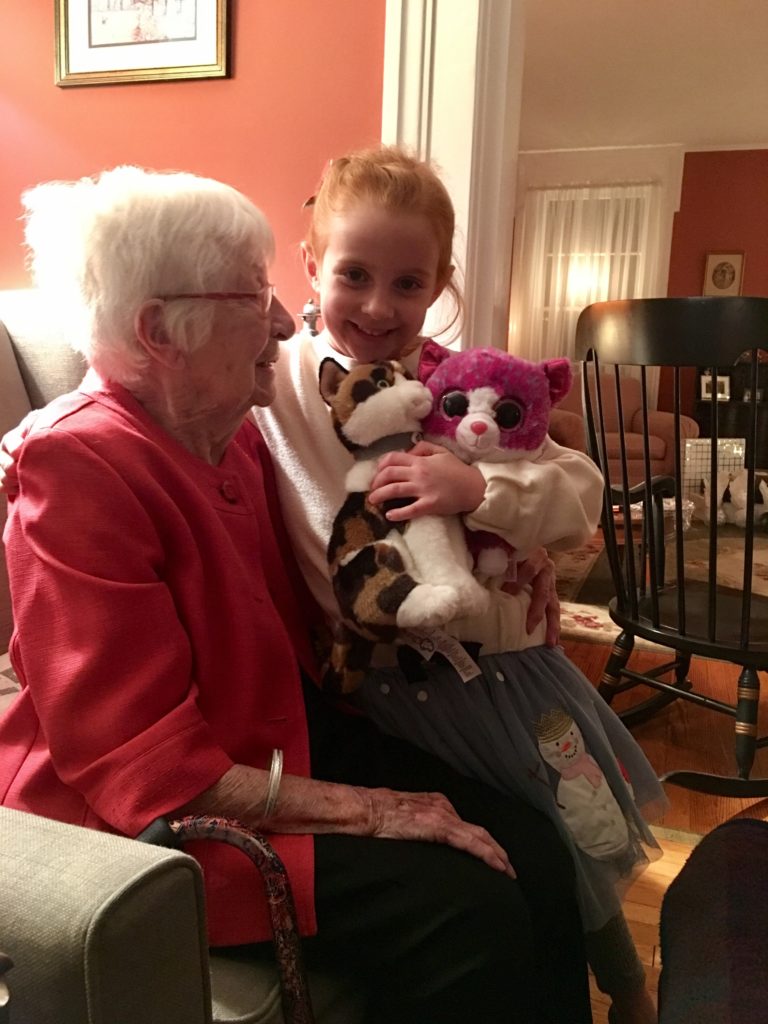
It can be really difficult for young children to express the affection often expected of them—especially when it is being requested by a family member they only see a few times a year. To avoid the awkward feeling of trying not to disappoint relatives, while still respecting your child’s boundaries and comfort level as a human being, try this:
- Speak Out Loud
“How would you like to say goodbye to grandma? Would you like to give her a hug, a kiss, a high five, blow a kiss, or wave goodbye?” This is a frequent line we use, loudly, during gatherings. Saying it out loud for our child helps let others know he has options and explains why he isn’t jumping into the expectant arms of whichever relative is doing the request. I hope we are teaching a valuable lesson here – one of respect that goes both ways. It’s ok if you don’t want to hug, kiss, etc. but you do need to acknowledge this person in some way. We frequently use it with ourselves, his brother, the dog…
You are your child’s best source of comfort and knowledge. Experience will teach them many lessons as they get older and have more of these holiday celebrations under their belt, but right now you are the narrator of their story—explaining what is happening and how to navigate through it all. Use your own knowledge of your child to support them the way only you can, and remember: we are all just flying by the seat of our pants raising our kids the best way we know how and trying to enjoy the holidays with as much joy as possible survive everything the holidays throw at us. We got this.
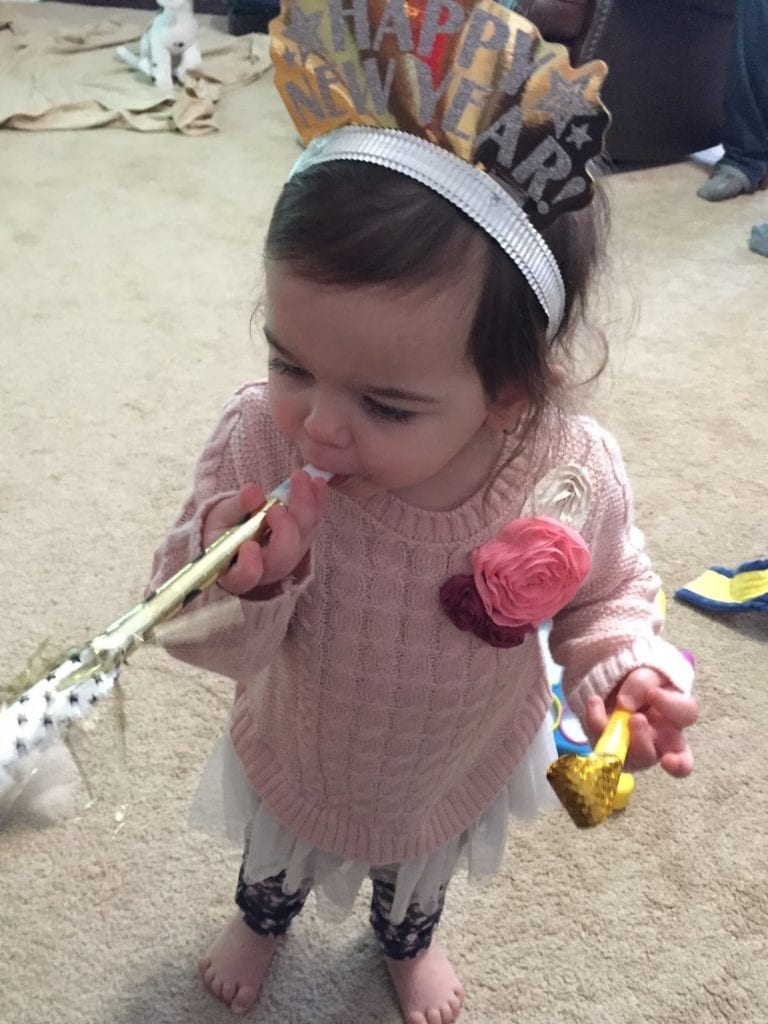
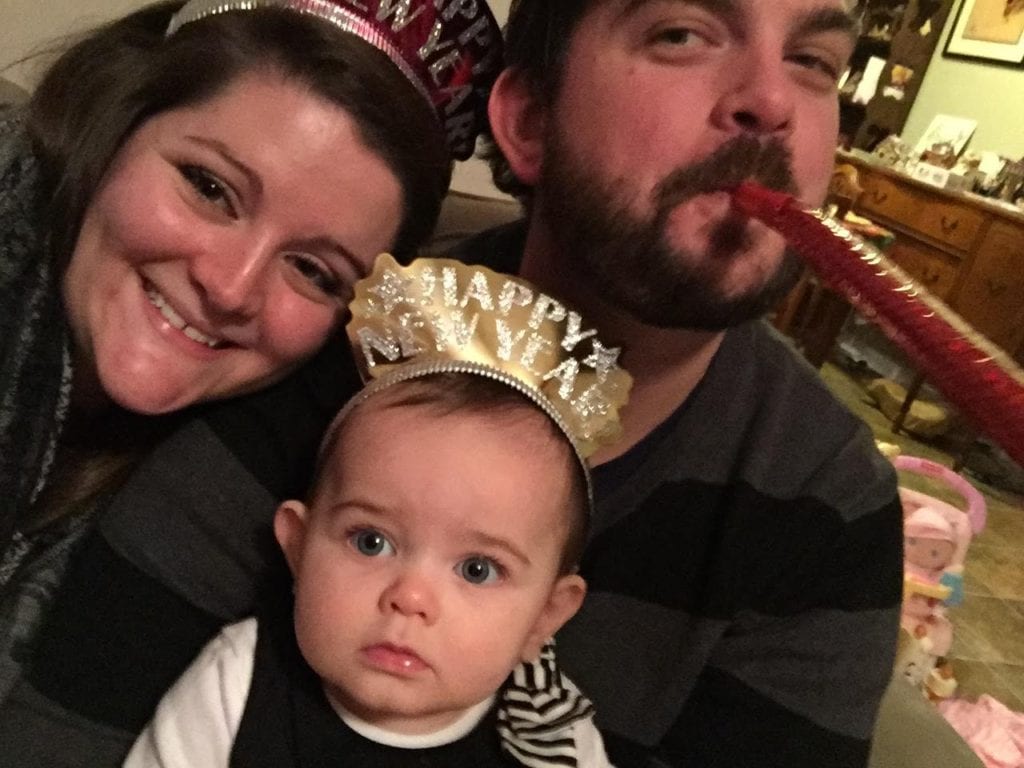

 1.866.668.5111
1.866.668.5111  6:30 am - 6:00 pm
6:30 am - 6:00 pm 
 Give a Happy High Five!
Give a Happy High Five!


